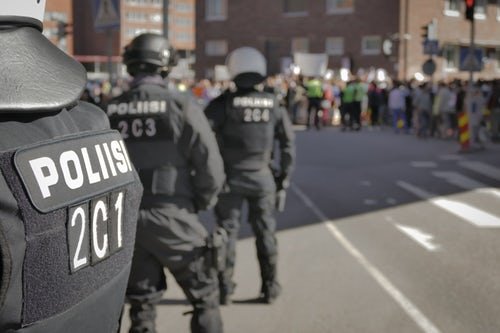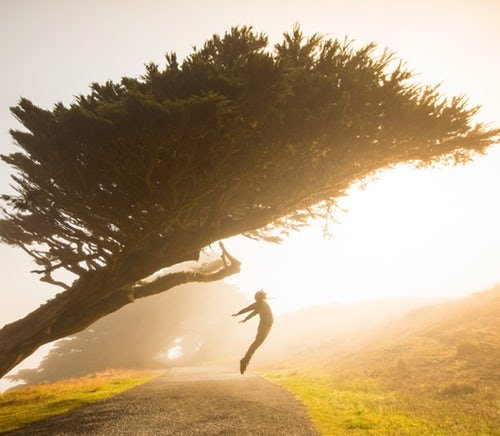
It seems like every time some authoritarian person, organization, or government tries to justify the removal of our freedoms they tell us how much safer we will be without them. They tell us that banning drugs will end addiction and overdoses (it usually doesn't), more heavily regulating weapons will reduce violence (that is dubious, at best), and that destroying our privacy will help to fight terrorists and other scary criminals (total bullshit). When these anti-freedom types make their false safety claims they are, interestingly, exploiting a truth that people rarely acknowledge. To be specific, they are pointing to the fact that freedom often carries a few risks and they use it as their "just cause" for the erosion of our liberty. It is true that in a free society there is there is going more opportunity to cause harm to the self or others but there is also a concept called acceptable risk. We must decide if the dangers that we face in freedom outweigh the benefits of that freedom and I don't think that they do in the vast majority of cases. Moreover, making attempts to reduce that danger may give birth to new and more serious threats. Our collective desire for greater safety is understandable but it also be a mental weakness that leaves us vulnerable to oppression. It is in our best interest, I believe, to reject attempts to reduce our level of freedom in the name of safety because our autonomy is both worth the risks that it carries and better than the alternatives.
People, generally, like to feel safe and those who seek to oppress us will exploit that desire. They offer us safety, either real or perceived (it doesn't matter which), but it comes at a price. They tell us that all we must do is hand over some crumb of our dangerous freedom in order to gain our security. "If you give up your right to govern your own bodies as you see fit, you needn't worry about all those scary drug 'addicts,'" they say to justify the drug war that oppresses millions of innocent people. "If you give us your freedom to defend yourselves, we can take all those weapons away from the dangerous criminals," they assert but they also fail to mention that we lose the ability to defend ourselves from the authorities themselves. These statements could go on and on but they all play out the same way. People who feel insecure about some threat that exists in the world are promised safety by the established system of authority in exchange for a portion of their autonomy but the cost is usually more dear than it seemed from the start. The authorities almost always crave more authority and that is easiest to come by when people willingly hand over their freedoms which, once they are gone, rarely return.

Freedom does carry some danger, which is why the systems of authority have been so successful in their attempts to sell safety in exchange for liberty, but I believes the rewards are well worth the risks. If all drugs are legal, some people will abuse them and fall victim to the potential problems that they can cause but many others will benefit. No one will be locked in a cage for taking charge of his or her own mind, people with medical needs for banned substances will not be forced to go without their medicine, and some will find greater understanding of the world and the self by altering their consciousnesses. The same is true of other freedoms that we have been willing to abandon in the name of safety. Privacy allows a few criminals to operate in the "shadows" but it also allows everyone else to live their lives free from judgment and scrutiny, for example. Being secure and safe is not an all or nothing affair, we can accept some risk without reducing the world to an unlivable hellscape. When it comes to freedoms that largely benefit the masses, it worth us suffering the actions of those who will abuse their freedoms because they, I believe, are the minority.

The important point here is that we come to understand that things that are risky are not always negative and things that purport to protect us are not always positive. When someone comes along and offers to defend us from our dangerous freedoms, we should question their motives and the efficacy and consequences of their solution. If we don't do that and we take the bait, one threat may be reduced (often it isn't, though) but the power of the authority will be increased in proportion to the decrease in the autonomy of the people which creates new and often worse threats. Drug laws may have prevented a few people from suffering negative life outcomes but they also created a massive police state that has killed countless men, women, and children in the name of keeping us safe, for example. Freedom might be dangerous but that's okay because it brings rewards and its own sort of safety (from those would oppress us). It is better, I believe, to embrace the danger and to reject the safety that comes at the cost of our freedom.
Peace.
All the images in this post are sourced from the free image website unsplash.com.
I don't mind if people want to trade their freedom for safety. Go for it.
It's only a problem when they want to trade my freedom for their safety.
Well said. That really is the problem with this whole issue.
Perfect Statement - concluded everything regarding to freedom and safety.
Security is mostly a superstition. It does not exist in nature, nor do the children of men as a whole experience it. Avoiding danger is no safer in the long run than outright exposure. Life is either a daring adventure, or nothing.
She's not wrong.
Curated for #informationwar (by @openparadigm)
Ways you can help the @informationwar!
FreezePeach